HIPAA Compliance Checklist for 2025

ChatGPT is transforming how enterprises work, but the cost of adoption is rising fast. A recent report highlighted that ChatGPT reached over 100 million weekly active users within a year, and enterprise adoption is scaling just as quickly.
Unused seats, duplicate subscriptions, and unclear billing models often drain budgets without leaders realizing it. Many IT and procurement teams lack visibility into who’s using what, leading to overspending and compliance risks.
This is where CloudEagle.ai makes a real difference. By giving teams a unified view of SaaS usage of ChatGPT license, automating renewals, and identifying underutilized licenses, it ensures enterprises get maximum value from their ChatGPT pricing guide.
TL;DR
- ChatGPT’s rapid enterprise growth has led to rising costs and wasted licenses. Many organizations pay for unused seats, duplicate subscriptions, and unmanaged API consumption without realizing it.
- Complex licensing models make cost tracking difficult. ChatGPT offers Free, Plus, Team, Enterprise, and API plans, but varying usage patterns and decentralized purchases create budget confusion and compliance risks.
- Hidden costs stem from unmonitored use and poor visibility. Inactive users, redundant licenses, and uncontrolled API calls quietly inflate SaaS spend, while lack of reporting obscures true ROI and compliance posture.
- CloudEagle.ai centralizes ChatGPT license oversight. It unifies all usage data, automates provisioning and renewals, reclaims unused licenses, benchmarks pricing, and ensures compliance through real-time visibility.
- Enterprises save money and improve security with automation. CloudEagle.ai streamlines access control, prevents overspending, and enhances audit readiness, turning ChatGPT license management into a transparent, data-driven process.
How Many Licensing Models ChatGPT Has?
OpenAI offers multiple licensing models for ChatGPT, designed to meet the needs of individuals, teams, and large enterprises. Understanding these options is crucial, because the right ChatGPT pricing plan determines both cost efficiency and flexibility.
- ChatGPT Free Plan (ChatGPT Basic): Provides limited access with usage caps, often used by individuals for testing and light use.
- ChatGPT Plus: A $20/month subscription that gives priority access, faster responses, and availability even during peak times.
- ChatGPT Team Plan: Designed for small teams, offering centralized billing, admin tools, and shared usage management.
- ChatGPT Enterprise Plan: Provides unlimited high-speed access and advanced security. The ChatGPT enterprise subscription cost also includes analytics and dedicated business account management for large organizations.
- ChatGPT API Licensing: Allows developers and enterprises to integrate ChatGPT directly into apps, workspace, and products, priced per token.
Each model scales differently depending on user count, usage volume, and security requirements. For enterprises, the most common choices are the Enterprise ChatGPT pricing Plan and API Licensing, since ChatGPT paid allows deeper integration and better SaaS compliance controls.
How ChatGPT Licenses Can be Confusing?
While ChatGPT offers flexible licensing models, navigating them isn’t always straightforward. Pricing varies by Chat GPT 4 pricing plan, usage patterns, and token consumption, making it difficult to estimate costs. Without centralized oversight, this mix in ChatGPT plan leads to overspending and compliance blind spots.
1. Multiple Subscriptions Across Departments
One of the biggest challenges with ChatGPT licensing is when different departments purchase their own subscriptions without coordination. Marketing, engineering, and support teams may each pay for separate licenses, often duplicating costs and leading to shadow IT. This inefficiency in ChatGPT subscription cost leads to hidden inefficiencies that add up quickly.
A 2023 Gartner report noted that nearly 25% of SaaS spend in large enterprises is duplicated due to siloed purchasing decisions. Without centralized oversight, companies risk paying for redundant ChatGPT license seats across teams. This unused cost of ChatGPT makes license management not just a financial concern but also an operational one.
2. Tracking API Credits vs. Seat Licenses
Enterprises often struggle to differentiate between ChatGPT’s API usage model and its seat-based licenses. While the API works on a pay-per-token or credit basis, the seat model ChatGPT pro pricing ties costs to individual users. Mixing these two makes SaaS benchmarking and forecasting much harder.
- API Credits: Billed based on consumption, often fluctuating with project workloads.
- Seat Licenses: Fixed per user, but can go underutilized if employees rarely log in.
- The Problem: Teams tracking only one model often miss hidden costs in the other.
According to Infosecurity Magazine, 39% of organizations admit they have little visibility into SaaS usage vs. consumption-based costs. This lack of clarity in ChatGPT license is exactly what inflates budgets when using ChatGPT at scale.
3. Lack of Transparency in Usage Metrics
One of the biggest challenges with ChatGPT licensing is the limited visibility into actual usage data. Enterprises often know how much they’re paying, but not how much value they’re getting back. This creates uncertainty when planning renewals or scaling licenses.
- Unclear Reporting: Usage dashboards don’t always break down by department or user.
- Difficult ROI Tracking: Without granular insights, ChatGPT API cost alignment is hard.
- Overprovisioning Risk: Companies keep paying for unused seats or unused API credits.
This lack of transparency results in IT leaders making decisions based on assumptions rather than data, leading to inefficiency and SaaS sprawl.
What are Some Hidden Costs Enterprises Can Face Due to Poor ChatGPT License Management?
Managing ChatGPT licenses without proper oversight can lead to costs that aren’t immediately obvious. The hidden costs can accumulate quickly, impacting budgets, procurement strategies, and overall SaaS ROI.
1. Paying for Inactive or Redundant Licenses
Enterprises often pay for licenses that are no longer in active use, leading to unnecessary costs. In large organizations, employees may leave, switch teams, or change roles, yet their software access remains active, creating hidden costs over time. Without a centralized system to track license usage, companies frequently overlook these redundancies.
For example, CloudEagle.ai revealed that Horizon Media had limited visibility into SaaS usage and spending across departments. There was no centralized process, and unused licenses often went unnoticed. CloudEagle.ai’s insights helped Horizon Media identify $107K in potential savings on their upcoming Monday.com renewal by benchmarking pricing against similar companies.
2. Unmonitored API Consumption Costs
Unmonitored API usage can quietly drive up costs for enterprises. When teams integrate ChatGPT into workflows without tracking usage, API calls can multiply rapidly, leading to unexpectedly high bills. These costs often remain invisible until an invoice arrives, creating budgeting headaches.
As Bill Gates said,
“Not everything that can be counted counts, and not everything that counts can be counted.”
This quote resonates strongly with SaaS spend, emphasizing the importance of monitoring API consumption to prevent hidden expenses and maintain financial control.
3. Compliance and SaaS Security Risks
Compliance and SaaS security risks emerge when ChatGPT licenses and usage aren’t properly managed. Enterprises may unknowingly expose sensitive information or violate regulations due to uncontrolled access.
Regulatory Violations
Failing to monitor license usage can lead to breaches of data protection regulations like GDPR or HIPAA.
Unauthorized Access
Without proper oversight, employees or contractors might use ChatGPT in ways that put corporate data at risk.
Audit Challenges
Untracked licenses and usage make it harder to demonstrate compliance during internal or external audits.
How to Manage ChatGPT Licenses Effectively?
Effective management of ChatGPT licenses is critical for controlling costs, ensuring compliance, and optimizing productivity. Without a structured approach, enterprises risk paying for underutilized licenses, missing usage insights, and exposing sensitive data.
1. Conducting Regular License Audits
Regular ChatGPT license audits are crucial for enterprises to ensure they only pay for what they actively use. Without systematic audits, organizations risk overspending on inactive or redundant subscriptions.
According to a 2023 Gartner report, companies waste an average of $1.4 million annually due to unused software licenses, highlighting the financial impact of neglected audits. By routinely reviewing ChatGPT licenses, IT and procurement teams can identify underutilized seats, optimize allocation, and maintain compliance with vendor agreements.
Regular audits also uncover discrepancies between actual usage and subscription levels, helping organizations make data-driven decisions and consider better SaaS contract negotiation strategies.
2. Centralizing License and Subscription Data
Centralizing license and subscription data gives enterprises a single source of truth for managing ChatGPT usage across departments. By consolidating all license information into one platform, organizations can streamline SaaS management, improve visibility, and reduce redundant costs. Here are some advantages:
Improved Visibility Across Departments
Teams can quickly see which licenses are active, unused, or nearing renewal, preventing overspending.
Simplified Compliance Tracking
Centralized records make it easier to demonstrate adherence to vendor agreements and internal policies.
Faster Decision-Making
Procurement and IT teams can make informed licensing decisions based on real-time usage data.
Reduced Administrative Burden
Manual tracking and cross-department reconciliation become unnecessary, saving time and reducing errors. Centralization ensures that organizations stay on top of license usage, making ChatGPT management more efficient and cost-effective.
3. Automating Provisioning and De-Provisioning
Automating the provisioning and de-provisioning of ChatGPT licenses ensures that users get access promptly while preventing unnecessary or orphaned accounts. Manual management of license assignments can lead to delays, security gaps, or overspending.
- Faster Onboarding: New employees or team members receive the correct ChatGPT access immediately, reducing downtime and boosting productivity.
- Automatic De-Provisioning: When an employee leaves or changes roles, their access is revoked automatically, lowering the risk of unauthorized usage.
- Reduced Operational Errors: Automation minimizes mistakes that can occur when manually assigning or removing licenses.
- Enhanced Security and Compliance: Timely de-provisioning ensures adherence to data security policies and vendor licensing terms.
Why Enterprises Use CloudEagle.ai for ChatGPT License Management?
Streamline your ChatGPT license management using CloudEagle.ai. The platform allows you to monitor usage, reduce costs, and handle renewals with ease. Here’s how it works:
Smooth Integration with ChatGPT Admin Console
CloudEagle.ai allows effortless integration with your ChatGPT Admin Console, bringing all license management under one roof. This connection syncs ChatGPT license data, user activity, and subscription details in real time, removing the hassle of juggling multiple systems.
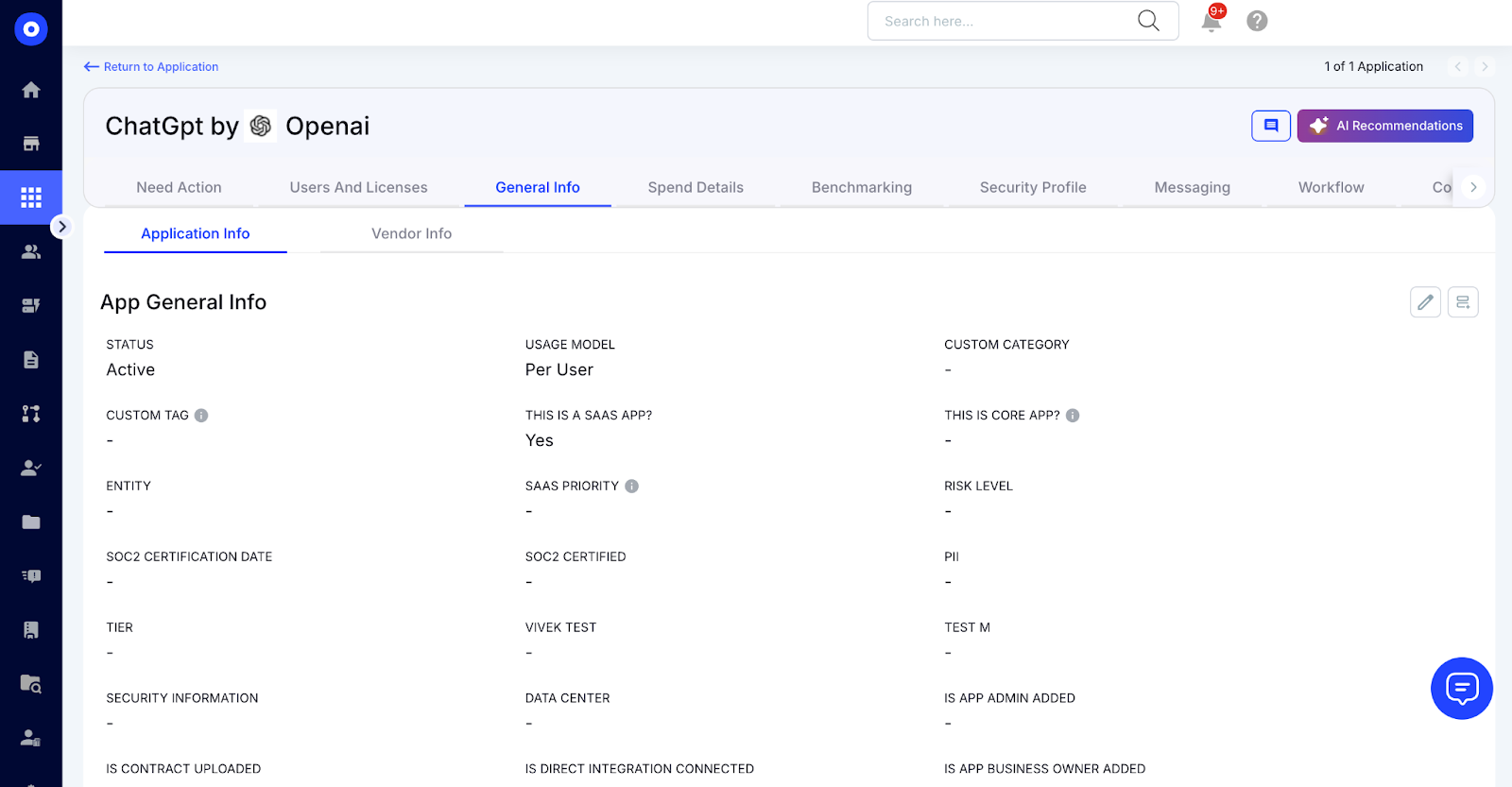
No more manual updates or switching between platforms, everything is accessible from a single dashboard. You can easily monitor license counts, renewal schedules, and user activity, ensuring your data is always accurate and current.
Instant Usage Insights & Shadow IT Monitoring
CloudEagle.ai provides real-time analytics to show exactly how your ChatGPT licenses are being utilized. You can quickly identify active, underused, or redundant ChatGPT accounts, helping you make informed decisions and avoid paying for unused licenses.

The platform also offers advanced activity insights, letting you filter and analyze usage by metrics such as meetings hosted or recorded.
Additionally, CloudEagle.ai helps detect Shadow IT, revealing instances where employees use ChatGPT outside official channels. This visibility allows you to address security risks and prevent unnecessary license costs.
Unified License Oversight
Managing ChatGPT licenses across multiple teams can get complicated, but CloudEagle.ai offers a single platform to oversee everything. You gain a complete view of licenses, users, and subscriptions in one location.
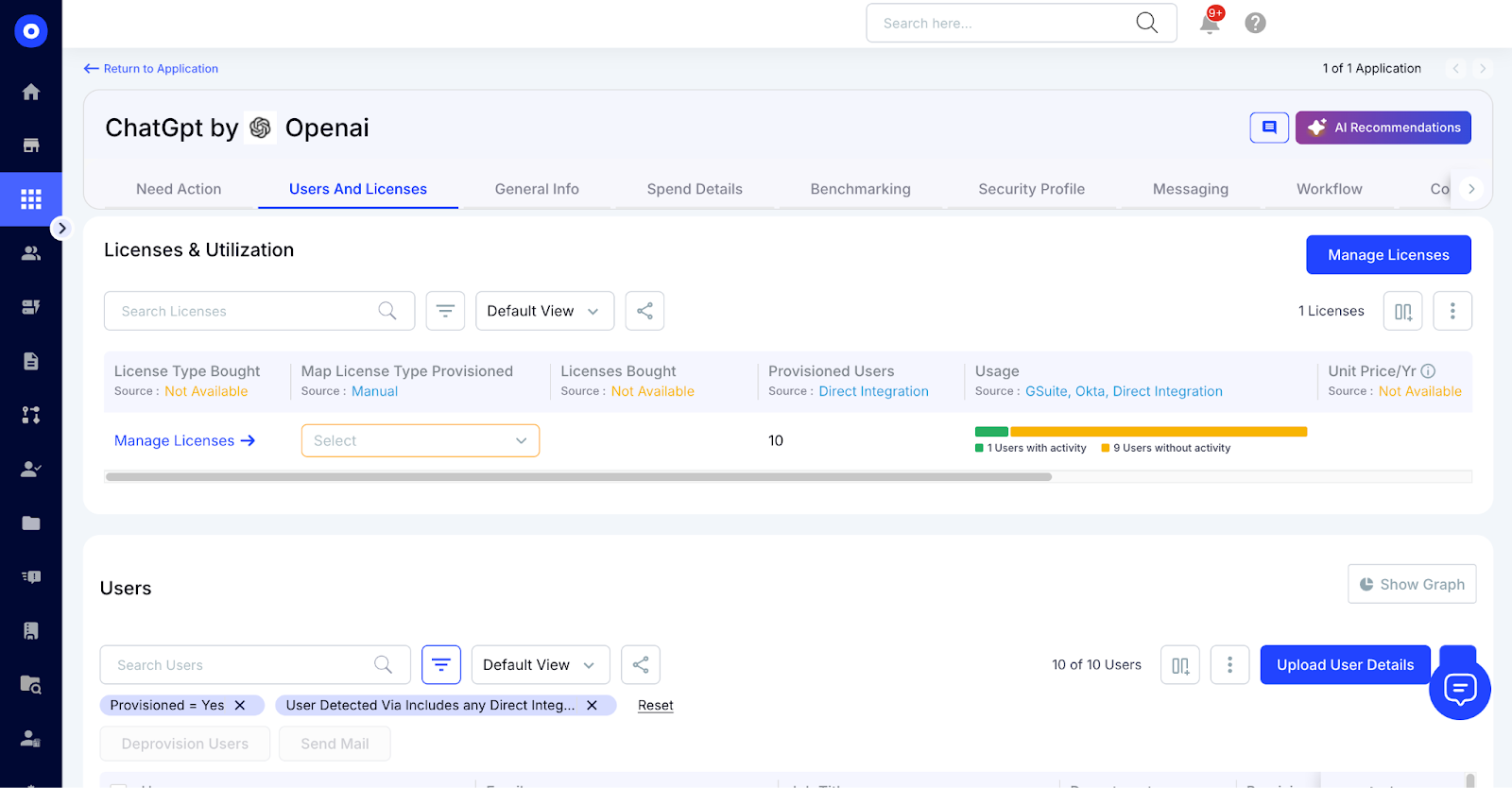
Monitor assigned licenses, spot those approaching expiration, and see which departments are over- or under-utilizing their allocations. Centralizing this information streamlines decision-making and enhances collaboration between IT and finance, helping optimize resources and focus on SaaS spend optimization.
Automated License Reclamation
Unused ChatGPT licenses can quickly inflate costs, but CloudEagle.ai makes reclaiming them simple. The platform monitors license usage and flags underutilized accounts, allowing license harvesting and reassigning licenses as needed.
With automated reclamation workflows, your ChatGPT licenses stay fully utilized, maximizing ROI and reducing wasted resources. This process eliminates manual tracking, saving your IT team time and effort. For example, RingCentral saved over $1.2 million through CloudEagle’s license harvesting, cutting costs efficiently.
Automated Role-Based License Assignment
CloudEagle.ai streamlines license provisioning by automatically assigning the right ChatGPT license based on an employee’s role. With role-based access control, new hires receive the correct access immediately, without manual intervention.
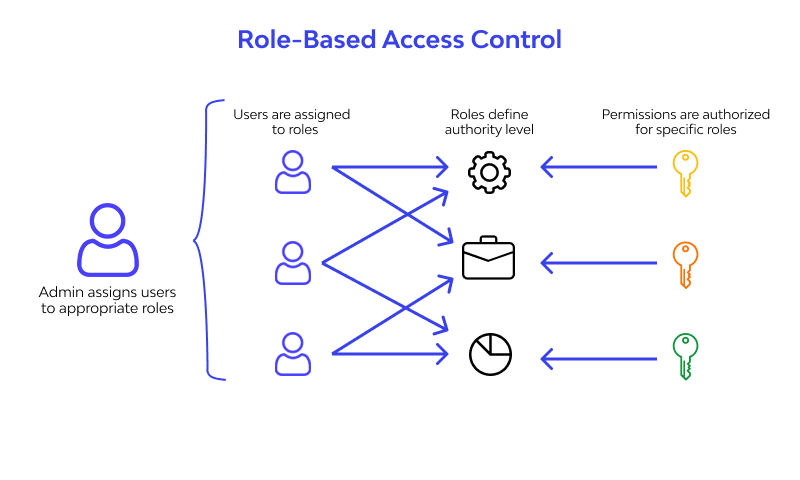
If an employee changes roles or departments, the platform updates their license to match their new responsibilities, ensuring they have the tools they need. This automation prevents over-licensing, reduces unnecessary costs, and accelerates onboarding by eliminating delays from manual IT assignments.
Price Benchmarking

CloudEagle.ai’s price benchmarking feature helps you get the most value from your license renewals. By comparing your contracts against industry standards, it ensures you secure fair rates and avoid overpaying.
Automated Renewal Alerts
CloudEagle.ai streamlines license renewals with automated workflows triggered by renewal dates. From approvals to adjusting license counts, the process runs smoothly, helping you avoid unnecessary auto-renewals.
The platform sends reminders well in advance, giving you time to review usage and make adjustments. You can modify your subscription based on current needs, ensuring you only pay for licenses and features actually in use. This keeps your ChatGPT subscription aligned with business requirements and prevents unexpected costs.
Streamlined App Access Requests
CloudEagle.ai simplifies granting ChatGPT access by letting employees submit requests directly through the platform or Slack, eliminating email chains and manual steps. Managers can review and approve requests in real time, ensuring quick access.
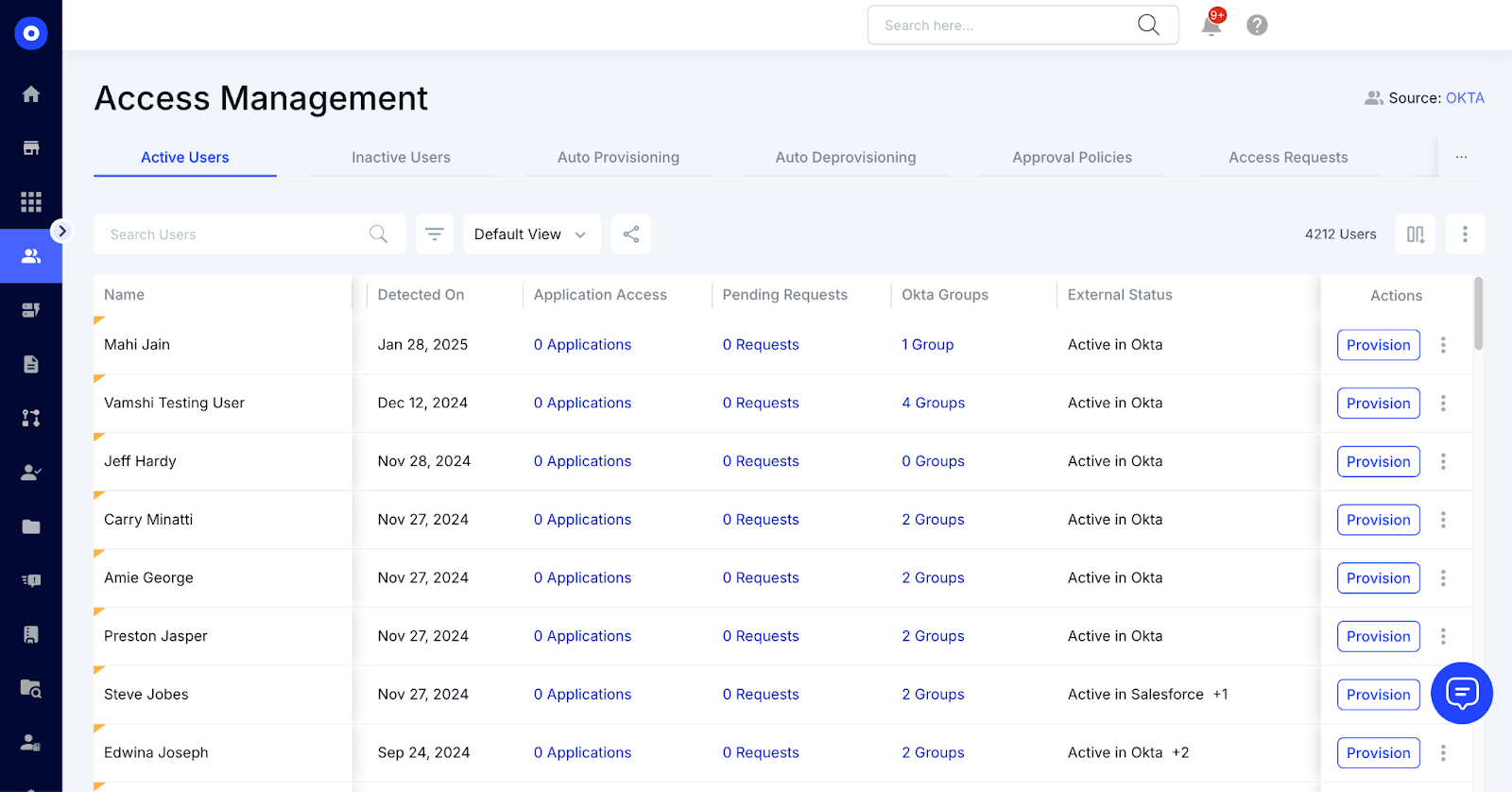
This access request management ensures employees receive the right licenses promptly while avoiding approval bottlenecks. Every request is logged for transparency and compliance, making app access management efficient and reducing administrative overhead.
Harness Vendor Dashboards
CloudEagle.ai provides vendor dashboards that give a complete view of your ChatGPT subscription data. You can monitor license usage, renewal dates, and spending patterns to make more informed decisions.
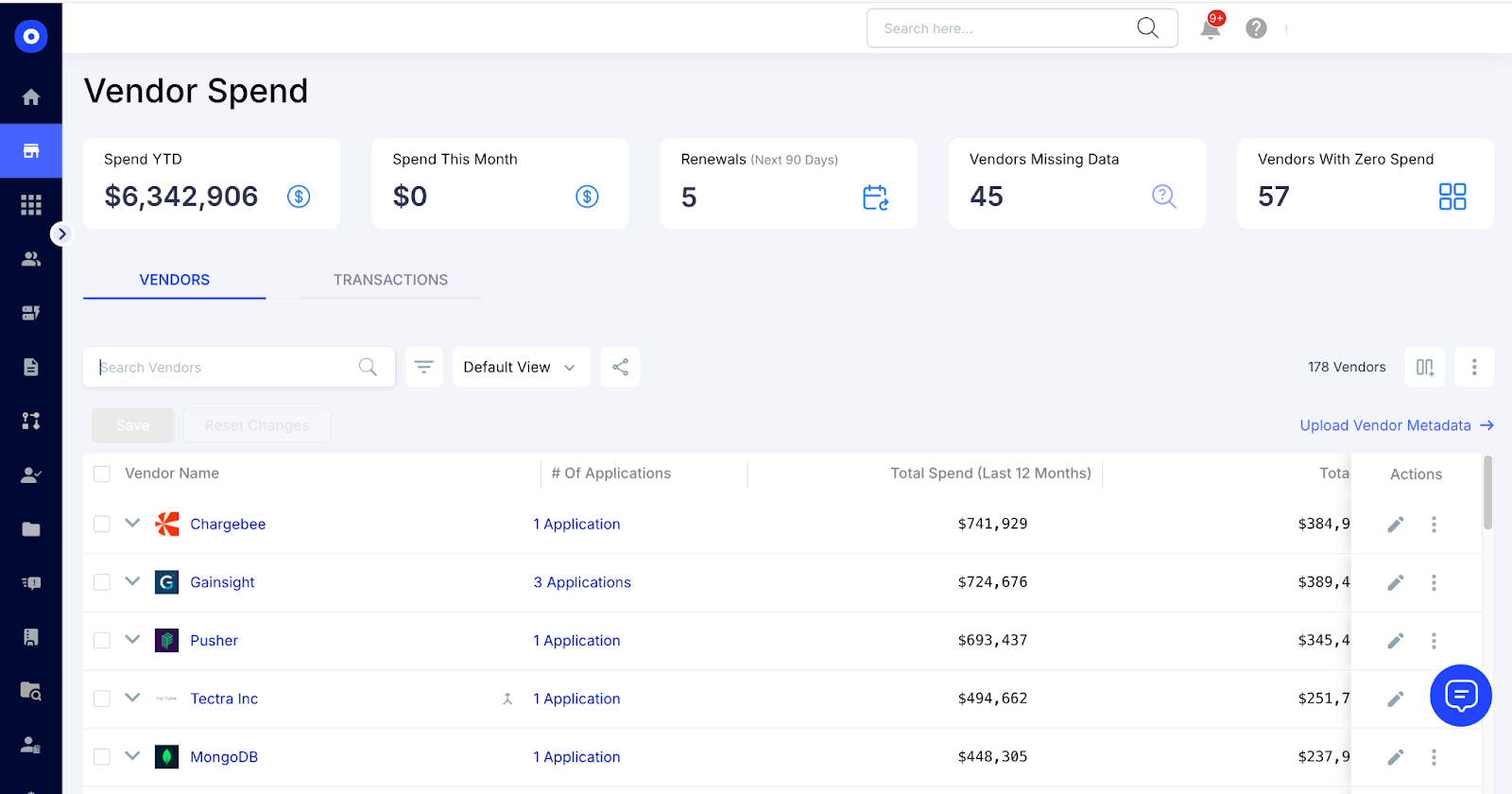
These dashboards help identify overspending and unused licenses, allowing you to reclaim resources efficiently. You also gain insights into usage trends, enabling proactive adjustments to keep your ChatGPT subscriptions optimized and cost-effective.
Automated Offboarding & License Security
CloudEagle.ai automates the removal of ChatGPT access when an employee departs, ensuring licenses are quickly deprovisioned. With these offboarding workflows, you no longer have to worry about missed steps.
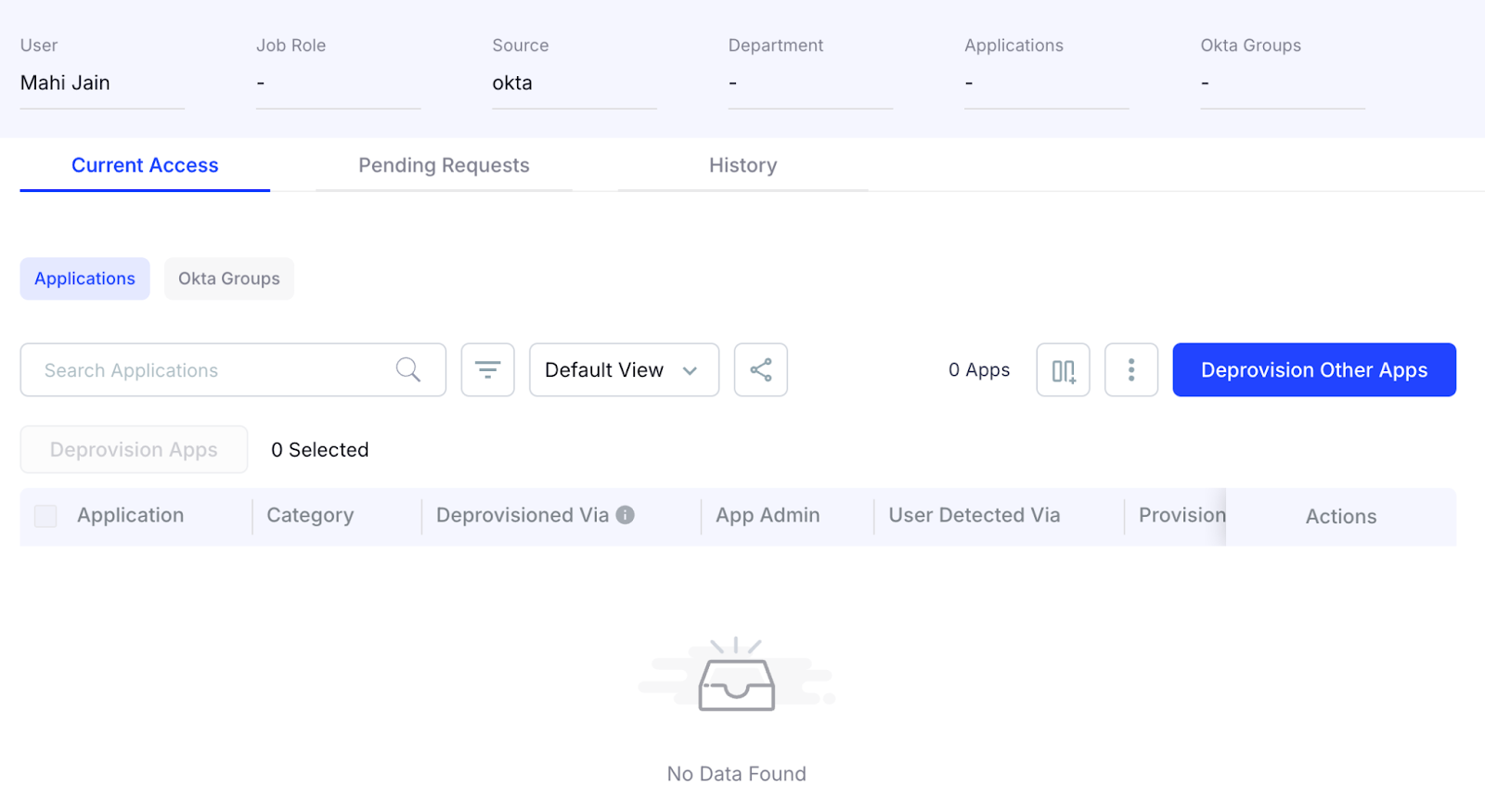
This approach minimizes security risks and prevents paying for unused licenses. Former employees are promptly removed, keeping your ChatGPT environment secure, compliant, and cost-efficient.
Conclusion
Effectively managing ChatGPT licenses is essential to reduce wasted spend, maintain compliance, and optimize productivity across teams. Without proper oversight, enterprises risk overspending on inactive or duplicate licenses, facing unmonitored API costs, and exposing sensitive data.
CloudEagle.ai simplifies license management by providing a centralized dashboard, automated provisioning, and actionable insights into usage. IT, procurement, and security teams can track licenses, monitor consumption, and reclaim unused seats seamlessly.
Take control of your ChatGPT licenses. Book a demo with the experts at CloudEagle.ai to optimize your license management, cut unnecessary costs, and ensure enterprise-wide compliance.
FAQs
1. How much does ChatGPT cost?
ChatGPT plans vary by usage. Free users get limited access, while premium tiers, such as ChatGPT Plus, offer enhanced features for a monthly subscription, with additional costs for API usage depending on the number of tokens consumed.
2. Is ChatGPT 4 expensive?
The cost of ChatGPT-4 depends on subscription and API usage. Enterprises may face higher expenses due to multiple licenses or heavy API consumption, making proper license management crucial to avoid overspending.
3. How to use ChatGPT 4 for free unlimited?
There’s no legitimate way to access ChatGPT-4 unlimited for free. Free tiers provide limited access, and attempts to bypass usage limits may violate terms of service and risk account suspension.
4. Is ChatGPT 4 better than Google's AI?
ChatGPT-4 excels in conversational AI, language generation, and contextual understanding. Google’s AI models may be stronger in search integration and knowledge retrieval, making each suitable for different enterprise use cases.
5. Is there a ChatGPT-5?
As of now, ChatGPT-5 has not been officially released. Enterprises should plan for current licensing structures (ChatGPT-3 and ChatGPT-4) while monitoring OpenAI announcements for future upgrades.

%201.svg)









.avif)




.avif)
.avif)




.png)









